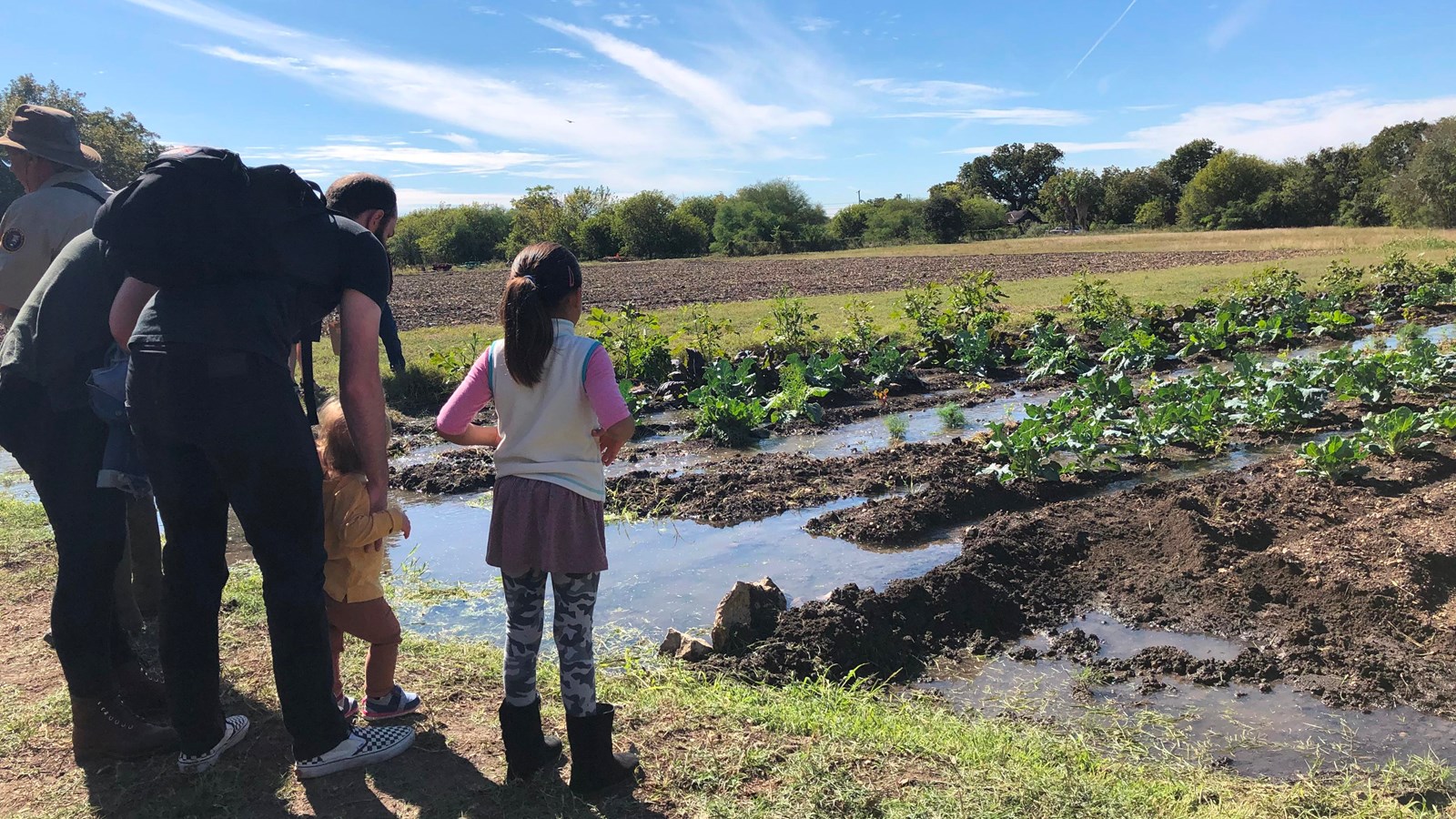Last updated: January 29, 2021
Place
Mission San Juan Farm

NPS Photo.
Accessible Rooms, Cellular Signal, Historical/Interpretive Information/Exhibits, Parking - Auto, Restroom - Accessible, Toilet - Flush, Trailhead, Trash/Litter Receptacles
The missions depended on the success of the farms. The first priority of the missions was to develop the farmlands to supply and support the mission populations. Mission sites were chosen on their ability to farm and build acequias, or irrigation ditches. Each mission site had a farm, but Mission San Juan farm is the only one that remains. Visit the small demonstration farm. This section shows visitors what the farm fields that surround the mission would’ve looked like.
The Spanish planted corn, beans, sugar cane. potatoes, squash, pumpkins, chile, cotton, and had orchards with peaches and watermelon.
Acequias: The Lifeblood of the Missions
Walk the acequia trail to explore more of the farm fields and see the historic flowing acequias, or irrigation ditches, carrying water from the San Antonio River. During the mission period, this acequia would water all the Mission San Juan farmland. This was easily done using wooden gates. Gates could be opened or closed depending on what fields needed water. In our demonstration garden, you can see how they planted their seeds on the berms and dug furrows for the water to flow.
The irrigation ditches are still flowing today and are used by the San Antonio Food Bank to irrigate their crops. The food bank pulls water from these acequias into their modern irrigation systems.
The farmland is still being used for its mission, to feed the people in the community. The foodbank donates all the food they grow to feed the people of San Antonio.
